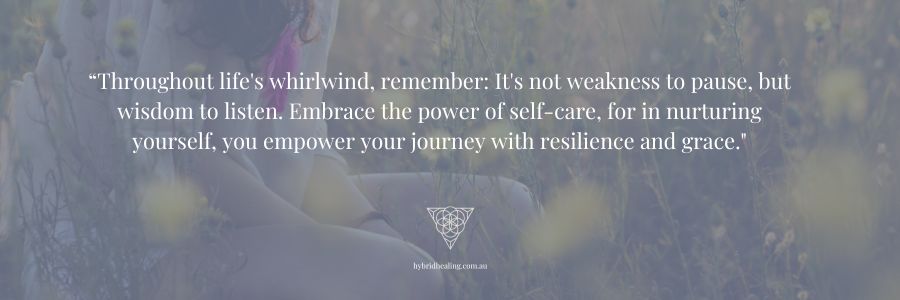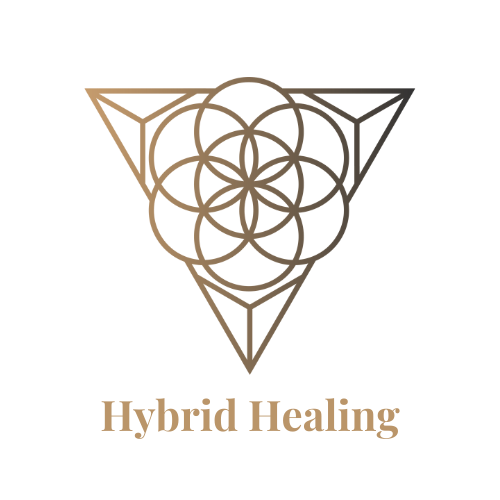
In the hustle and bustle of today’s modern life, it’s really easy to get caught up in the endless cycle of productivity.
We often feel the need to keep pushing forward, to keep up with the demands of work, family, and social obligations. Sometimes we may even feel that our value is measured by how much we can achieve in one day, the constant quest for perfection and approval of others.
However, amidst this whirlwind of endless activity, it’s crucial to remember one simple truth: It’s really okay to admit when you need a time-out, and in fact necessary.
In the fast paced world we live in, there’s a pervasive notion that taking a break is a sign of weakness or laziness. We’re constantly bombarded with messages that glorify busyness and productivity, leaving little room for rest and relaxation. There’s this undertone of guilt and shame we feel for needing rest, of not being able to live up to this extraordinarily high “but invisible” bar that we set for ourselves. However, this mindset can be detrimental to our mental, emotional, and physical well-being.
The reality is, giving yourself permission to take a break is an act of self-love and self-care, and is really good for us. It’s about recognising your own limits and honouring your body and mind’s need for rest and rejuvenation. Contrary to popular belief, taking a step back doesn’t equate to failure or defeat. Instead, it’s a courageous acknowledgment of your own humanity and vulnerability.
Tuning into and listening to yourself is a crucial aspect of self-care and self respect. Your body and mind are constantly sending you signals, whether its feelings of fatigue, stress, or burnout. Ignoring these signs can lead to long-term consequences, including chronic illness, anxiety, and depression. By tuning into your inner voice and paying attention to your needs, you can take proactive steps to prioritise your well-being.
Even athletes take regular rest for rejuvenation, it’s a requirement for recovery and performance, burning the candle at both ends is counter productive.
Giving yourself permission to take a break doesn’t mean shirking your responsibilities or neglecting your obligations. It’s about finding a healthy balance between work and rest, and recognising that your well-being is just as important as any task on your to-do list. In fact, studies have shown that taking regular breaks can actually boost productivity, creativity, and overall job satisfaction.
Some amazing ways in which we can engage in self care that include activities and practices that we deliberately do to take care of our mental, emotional, and physical well-being are:
Physical Exercise: Engage in regular physical activity such as walking, jogging, yoga, or any form of exercise you enjoy. Exercise not only keeps you physically fit but also boosts your mood and reduces stress.
Healthy Eating: Nourish your body with nutritious foods. Eat plenty of fruits, vegetables, whole grains, and lean proteins. Drinking enough water is also crucial for overall health.
Quality Sleep: Ensure you get enough sleep each night. Develop a consistent sleep routine and create a comfortable sleep environment to promote restful sleep.
Mindfulness and Meditation: Practice mindfulness meditation or other relaxation techniques to reduce stress, increase self-awareness, and promote emotional well-being.
Time Alone: Allocate some time for solitude to recharge and reflect. Use this time to pursue activities you enjoy or simply relax without distractions.
Hobbies and Interests: Engage in activities that bring you joy and fulfilment, whether it’s painting, playing a musical instrument, gardening, or any other hobby you love.
Social Connections: Spend quality time with friends and family members who uplift and support you. Building and maintaining positive relationships is essential for emotional well-being.
Setting Boundaries: Learn to say no to things that drain your energy or cause stress. Setting boundaries helps you prioritise your needs and avoid burnout.
Journaling: Write down your thoughts, feelings, and experiences in a journal. Journaling can help you process emotions, gain clarity, and track your personal growth.
Self-Compassion: Practice self-compassion by being kind and understanding toward yourself, especially during challenging times. Treat yourself with the same kindness and empathy you would offer to a friend.
Seeking Support: Don’t hesitate to reach out for professional help if you’re struggling with your mental health. Therapy, counselling, or support groups can provide valuable support and guidance.
Unplugging from Technology: Take regular breaks from screens and digital devices to reduce stress and promote relaxation. Spend time outdoors, read a good book, or engage in other screen-free activities.
Remember that self-care is not selfish; It’s loving and builds self respect and it’s so necessary for maintaining overall well-being and resilience. It’s essential to prioritise self-care and integrate it into your daily routine.
So, the next time you feel overwhelmed or exhausted, don’t be afraid to hit the pause button. Whether it’s a short walk outdoors, a meditation session, or simply curling up with a good book, give yourself the gift of time to recharge and replenish your energy. Remember, everything else can wait. The world isn’t going to end if you take a moment to prioritise your own well-being.
Embracing self-care means embracing the power of admitting when you need a break. It’s about giving yourself permission to listen to your body and mind, and to prioritise your well-being above all else. By doing so, you’ll not only feel happier and healthier, but you’ll also be better equipped to tackle life’s challenges with clarity, resilience, and grace. So go ahead, take that break. You deserve it.
If you’re ready to start to engage in some self care through finally saying no to negativity and mastering boundaries, then you can start here with our FREE 4 Part Masterclass “The Art of Empowered Living” HERE
Warm regards
Loretta and the team at Hybrid Healing

Recent Comments